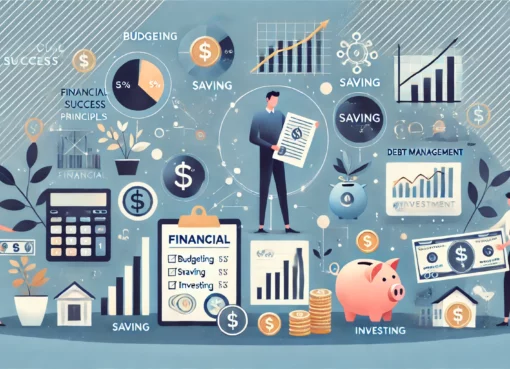Why Financial Knowledge Matters

Why Financial Knowledge Matters: A Guide to Financial Literacy Financial Planning and Managing Debt for a Secure Future
Why Financial Knowledge is Crucial in Today’s World
In today’s fast-paced and interconnected world, understanding finances has never been more important. Financial literacy is not just a skill; it’s a necessity for navigating the complexities of modern life. From managing daily expenses to planning for long-term goals, financial knowledge empowers individuals to make informed decisions, avoid common pitfalls, and achieve financial independence. This article delves into why financial knowledge is essential, exploring its role in personal finance, economic resilience, and overall life stability.
The Foundations of Financial Literacy
Financial literacy encompasses the understanding of key concepts such as budgeting, saving, investing, and debt management. It is the foundation upon which personal finance decisions are made. Without this knowledge, people are more likely to fall into financial traps, such as accumulating unnecessary debt or failing to save for emergencies.
- Budgeting: Creating and sticking to a budget helps individuals track their income and expenses, ensuring they live within their means.
- Saving: Building an emergency fund and saving for future goals provides a safety net during unexpected financial challenges.
- Investing: Understanding investment strategies can grow wealth over time, offering a pathway to financial independence.
- Managing Debt: Responsible borrowing and timely repayment prevent debt from becoming an overwhelming burden.
The Role of Financial Knowledge in Achieving Life Goals
Financial knowledge directly influences the ability to achieve personal and professional goals. Whether it’s buying a home, starting a business, or planning for retirement, understanding financial principles is essential.
- Short-Term Goals: Financial literacy helps with immediate needs, such as reducing unnecessary expenses or setting up a savings plan.
- Long-Term Goals: From retirement planning to college funds, a well-informed individual can make strategic decisions to ensure future financial security.
Why Financial Literacy is Crucial in Economic Challenges
Economic uncertainty is an inevitable part of life. Inflation, job losses, and market fluctuations can derail even the most well-thought-out financial plans. Financial literacy equips individuals with tools to adapt and respond effectively to these challenges.
- Inflation Management: Knowing how to invest in assets that hedge against inflation protects purchasing power.
- Job Security: Having savings and diversified income streams provides a buffer during periods of unemployment.
- Market Volatility: Educated investors are better prepared to navigate financial markets, minimizing losses during downturns.
Bridging the Knowledge Gap: Addressing Financial Education Deficiencies
Despite its importance, financial education is often overlooked in formal education systems. Bridging this gap requires a multi-faceted approach:
- Incorporating Financial Education in Schools: Early exposure to financial concepts can build a strong foundation for future decisions.
- Community Workshops: Local organizations can offer free or low-cost financial education programs.
- Online Resources: The internet provides a wealth of tools, from budgeting apps to investment guides, that empower individuals to learn at their own pace.
Practical Steps to Improve Financial Knowledge
- Read Books and Articles: Financial experts often publish books and articles offering insights into money management.
- Attend Seminars and Webinars: Many financial institutions host free educational sessions.
- Use Financial Tools: Apps and software can help track expenses, create budgets, and monitor investments.
- Seek Professional Advice: A financial advisor can provide personalized guidance tailored to specific goals and challenges.
The Ripple Effect of Financial Literacy
When individuals are financially literate, the benefits extend beyond personal well-being. Entire communities thrive as financially informed citizens make better decisions, contribute to economic stability, and support local growth.
- Reduced Poverty Rates: Financial literacy helps individuals escape cycles of debt and poverty.
- Stronger Families: Money management skills reduce financial stress, leading to healthier relationships.
- Economic Growth: Well-informed consumers and investors play a crucial role in driving economic progress.
Conclusion
In today’s world, financial knowledge is a cornerstone of personal and collective success. It enables individuals to navigate economic challenges, achieve life goals, and contribute positively to society. As the financial landscape continues to evolve, staying informed is not just an advantage but a necessity. By embracing financial literacy, we empower ourselves and future generations to lead secure, prosperous lives.




